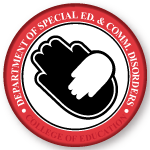Document Type
Article
Publication Date
2013
Publication Title
International Journal of Special Education
Volume
28
Issue
2
Abstract
Over the past 30-years linguists have been witnessing the birth and evolution of a language, Idioma de Señas de Nicaragua (ISN), in Nicaragua, and have initiated and documented the syntax and grammar of this new language. Research is only beginning to emerge on the implications of ISN on the education of deaf/hard of hearing children in Nicaragua. The purpose of this comparative exploratory field study was to evaluate preprimer and primer Dolch sight words and sign language frequency between English, American Sign Language (ASL), Spanish and Idioma de Señas de Nicaragua (ISN). The research focused on word and sign frequencies between the languages and used Stokoe’s parameters of location, hand shape, and movement to study the phonology of the signs. ISN has been closely evaluated over the first few decades of its existence. This study is meant to serve as a foundation for examining the use of ISN as a means toward achieving literacy for deaf/hard of hearing students in Nicaragua.
Recommended Citation
Delkamiller, Julie, "Evaluating the Phonology of Nicaraguan Sign Language: Preprimer and Primer Dolch Words" (2013). Special Education and Communication Disorders Faculty Publications. 8.
https://digitalcommons.unomaha.edu/spedfacpub/8

